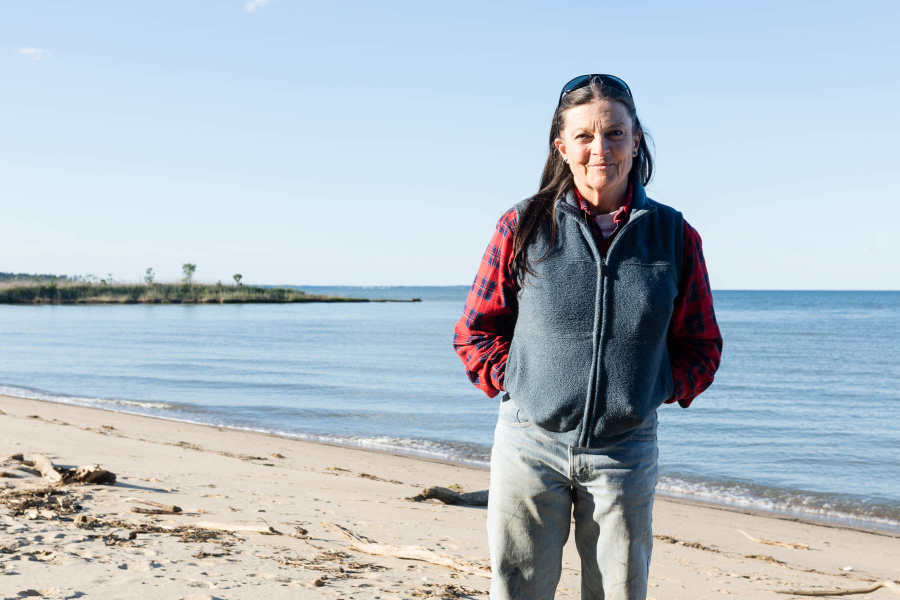The vacation of a lifetime
Ida Hall first learned the ways of the watermen while visiting her cousin. She’s still there, working the water.

For Ida Hall, a two-week vacation has turned into 45 years on the water.
It all started with her cousin, Hal. “I went on his boat and got hooked,” she recalls.
Hal, a waterman, taught her how to set up nets to catch fish and other basics of working on the water. After Hall finally got her net set up right, “I sold $54 worth of striped bass and I was hooked.”
This led Hall down a road few women traveled at the time. But she wasn’t all alone.
“My brother James was very instrumental in encouraging me,” says Hall. “He was a board-certified cardiologist who didn’t really want to practice. He wanted to work on the water.” However, after he began a career as a doctor, at their parents’ urging, he gave his sister his fishing nets.
Using a boat from her uncle, nets from her brother and knowledge from her cousin, Hall set out to work the water. Her cousin continued to help her by taking her fish to market for her. “I was pretty timid about that,” recalls Hall.
But when it came to the work, “I just loved it. I just wanted to be out there and do it in whatever way I could.”
Eventually, she started selling her own catch. “I started selling some soft crabs down the road at a crab house where there were a lot of women there.” It helped her gain confidence and forget her differences from other watermen. “I didn’t want to think that I was a female—this is a job I want to do.”
However, in a male-dominated field, one where there isn’t even a commonly used word for women doing the work, Hall stuck out. “To most of the watermen out there, I was a young, 22-year-old woman. That’s how they looked at me.”
But Hall wasn’t entirely alone. “There was another woman in the area, Cathy Davenport, who ran her father’s boat building business,” remembers Hall. “I admired her courage, ability and talent doing this in what was a pretty male-dominated industry.”
Hall continued her life as a waterman, living in the house her father had grown up in. “He had left to become a doctor and provide a lot more than his parents were available to provide for him,” remarks Hall. “Here’s his daughter coming back to live the life he left.”
“I knew all the things I didn’t want to do like go back to school, teach or nurse.” Not knowing what else she wanted to do, and knowing what she definitely didn’t want to do, Hall stuck it out as a waterman. “I loved the outdoors, I love the water, and it was where my family would visit other relatives.”
It was decades later—at least 25 years—that she felt like she was part of the waterman’s culture. “I felt like—I’m out here, I’ve been doing this, and I feel like I really am part of it.”
After decades on the water, and 16 years serving on the Potomac River Fisheries Commission, Hall still takes her boat out to empty her nets and pull up—by hand—the crab pots she set. What gets her up each morning? Expectation. The feeling of anticipation, of not knowing what she will see or catch. “There’s beauty out there on the water there,” says Hall. “You have to live it. It’s just unimaginable.”
She says she still travels on the same path that she went with her cousin on her very first day.

Comments
Ida having someone write a about you, is so not you. Although ever since I have known you this is you. God has blessed you with a wonderful life.
So admirable!! Love this story!!
Thank you!
Your comment has been received. Before it can be published, the comment will be reviewed by our team to ensure it adheres with our rules of engagement.
Back to recent stories